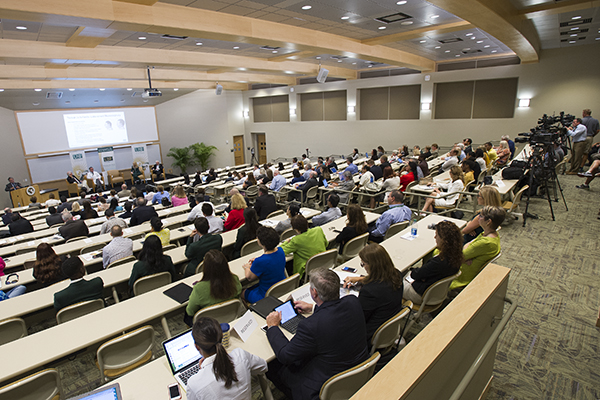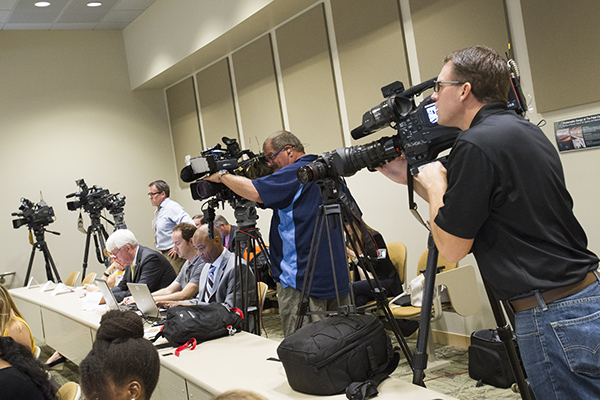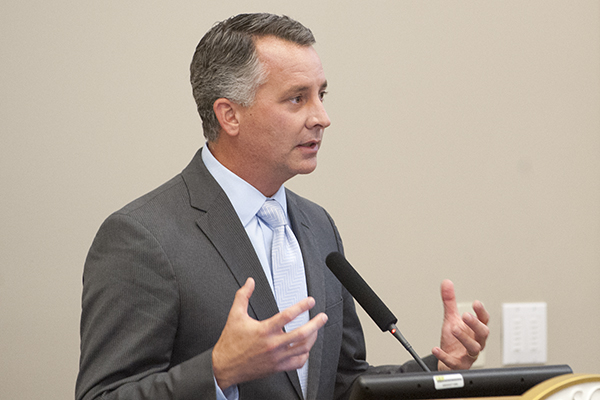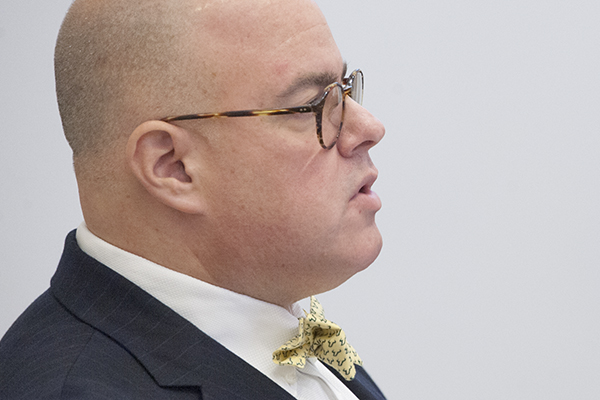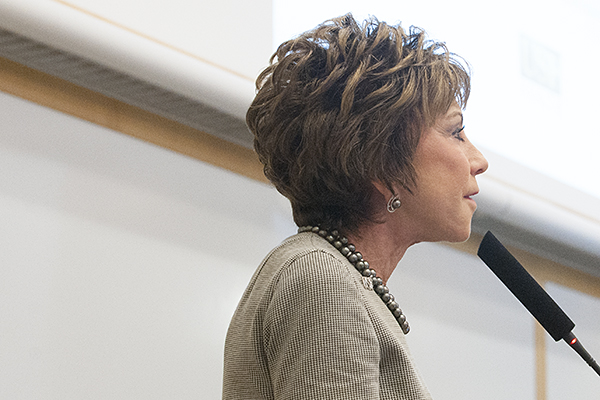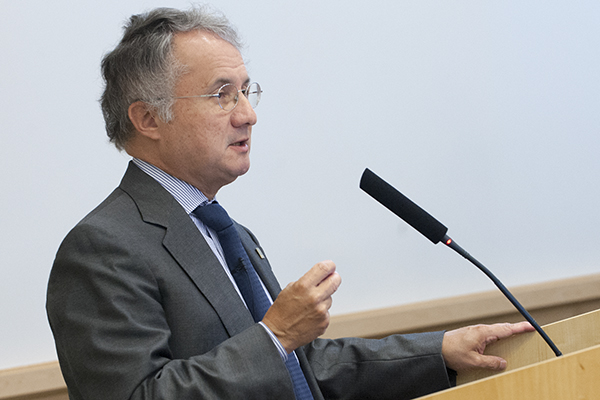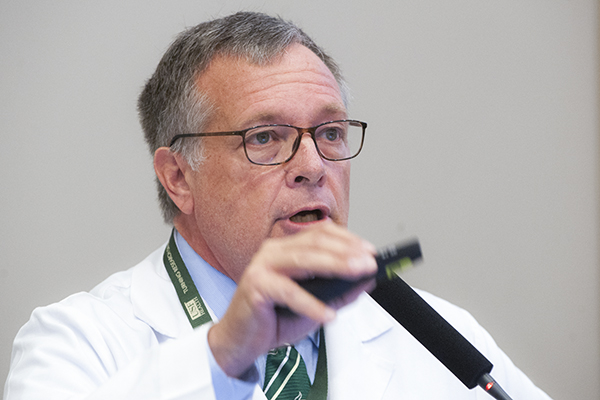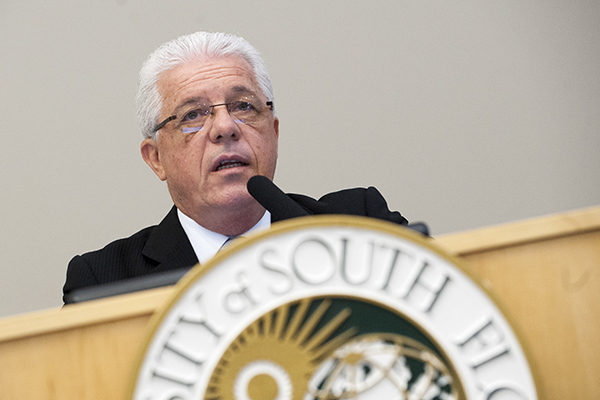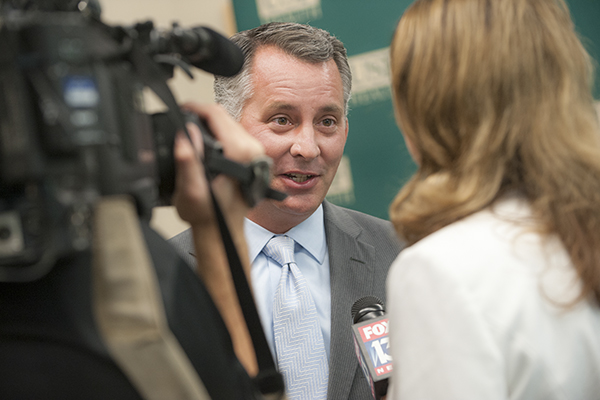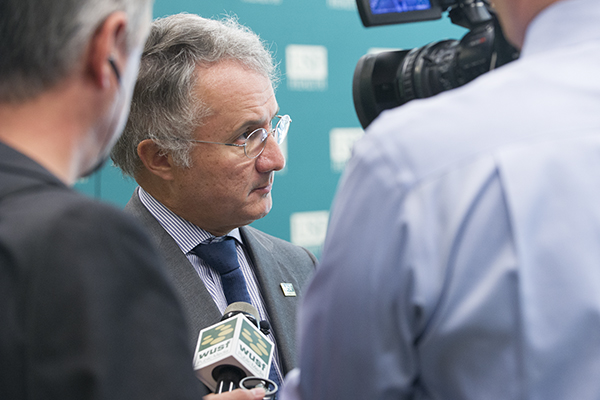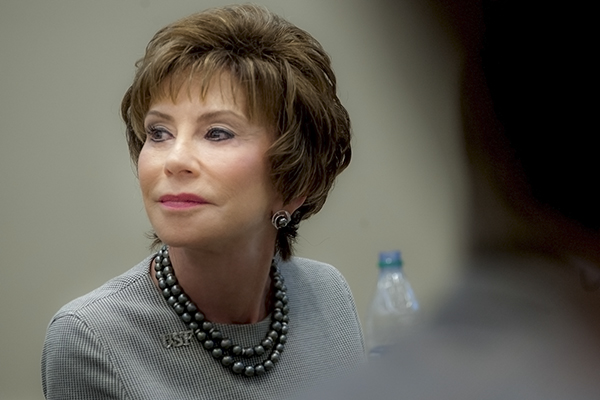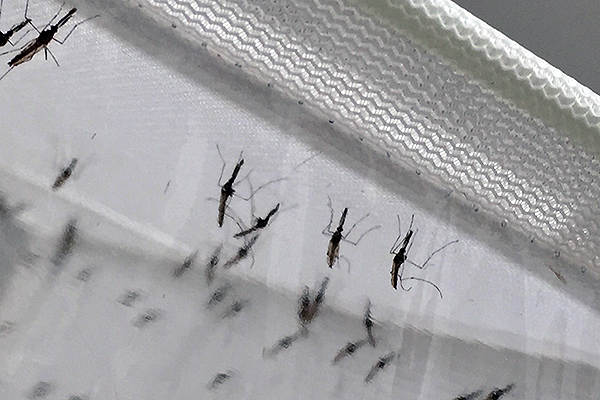Visit USF’s Zika at Our Doorstep website
Florida has become ground zero for the Zika virus – home of the first non-travel related cases of the mosquito-borne virus in the continental United States.
To put the current epidemic in context and discuss options for addressing this rapidly evolving public health and medical threat, experts from across USF Health gathered Aug. 19 for a half-day conference titled Zika at Our Doorstep: An International Public Health Conversation.
Top researchers, elected and appointed government officials, and community leaders in the region’s tourism, transportation and health care industries filled the auditorium at the Patel Center for Global Sustainability to share the latest information about the virus. They also highlighted the need for more federal funding to support public health surveillance studies and biomedical research for early detection and new treatments such as vaccines and anti-viral agents, as well as studies to understand the development of Zika-associated fetal, childhood and adult brain effects.
Also attending were federal legislators U.S. Rep. Kathy Castor and U.S. Rep. David Jolly, along with State Rep. Neil Combee.
The access to Zika experts also attracted extensive coverage by Tampa Bay area print, online and broadcast media, and the conference was picked up by additional news outlets, as well as other viewers, via online livestream.
Before the conference, Rep. Castor and Rep. Jolly toured the USF insectary where they saw firsthand the mosquitoes raised there. Research staff explained how they use the laboratory to better understand the insect and work on more effective treatments for devastating mosquito-borne diseases or develop vaccines to prevent infections. Currently the lab does not contain Zika-carrying mosquitoes, but it is designed to begin studying the virus.
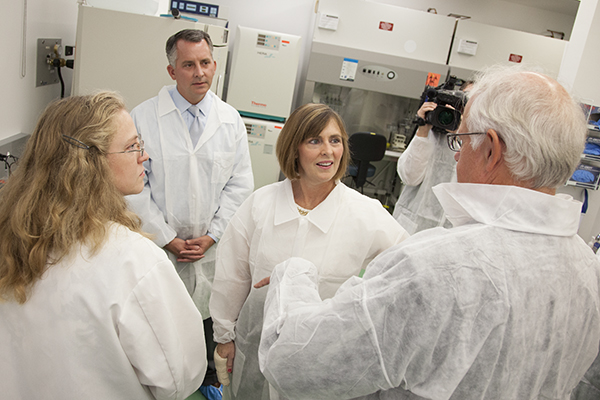
U.S. Reps. David Jolly and Kathy Castor tour USF insectary with Dr. Thomas Unnasch. Photo by Ryan Noone.
The Zika virus has prompted worldwide concern largely because of its alarming connection to serious neurological birth defects, and its recent arrival in non-travel related cases is setting off alarms across the state. The conference featured topics that ranged from pregnancy and fetal effects to the importance of Zika risk communication. The following are highlights of what was said by the experts, elected officials and guests:
U.S. Rep. Kathy Castor:
It’s important because, while the Congress is not acting, at least the folks here on the ground in the Tampa Bay area and at the University of South Florida are doing everything they can to educate the public and do some of the necessary research… This is a premiere university in the state and one of the top in the country for health innovation… We now know there have been 15 babies born with microcephaly and birth defects in the country. And there are hundreds of pregnant women known to be infected with the Zika virus being tracked right now. The Department of Health and Human Services says that, unless they receive supplemental funding, it will impact their ability to track these women, develop diagnostic tools and develop the vaccine… It’s much more cost-effective and efficient if you put the money into prevention — to prevent additional cases of birth defects and microcephaly.”
U.S. Rep. David Jolly:
“This is a regional issue. The Florida delegation understands this impacts us more than other states. So as a delegation, they need to impress upon leadership and the broader Congress to actually pass the (funding) package… We still don’t know everything we need to know about Zika, the resources we need to control it and how to prevent it… We just took a tour of the insectary. This is one more remarkable thing that’s occurring at USF. A handful of research institutions are contributing to a national effort to learn more about mosquitoes and Zika so that, ultimately, we can contain it and hopefully, one day very soon, have a vaccine developed to eradicate the spread of Zika.”
Edmund Funai, MD, USF System vice president and chief operating officer for USF Health:
“Rarely have I had the privilege of attending a conference that is so timely. And literally, just walking out of my house this morning, I saw two reports making their way through the media. One regarding another outbreak in Miami Beach, and another, far more concerning, about potential neurologic brain effects in adults. In this conference you’ll hear potential effects of this virus on unborn children. But now it’s becoming more clear that we may all be potentially at risk.”
Judy Genshaft, PhD, president of the USF System:
“We must be responsive and vigilant and willing to invest the necessary resources to stop Zika in its tracks and protect the most vulnerable among us from its devastating effects…By working collaboratively USF has a huge interdisciplinary team throughout the campus working on this particular response and on understanding Zika, whether it be maternal-fetal medicine, infectious disease, epidemiology, obstetrics, mosquito biology, public health, psychology, and chemistry… We want to be able to apply new knowledge to this virus and other tropical viruses that carry an increasing global threat. The investment in this is a wise one. The interconnected nature of our world means we all have a stake in fighting these kinds of outbreaks.”
Charles J. Lockwood, MD, senior vice president for USF Health and dean of the Morsani College of Medicine, a leading authority on Zika with expertise in maternal-fetal medicine, and a trustee on the March of Dimes National Board:
“This virus presents an extraordinary challenge to obstetricians and patients and it is the greatest threat to the well-being of American babies since polio…We just don’t have enormous amounts of data and that hinders our ability to predict an outcome… For a while we thought the third-trimester risk was not as bad, but now we know that, in fact, babies can appear to be perfectly normal in utero and up to term, and that microcephaly and other catastrophic consequences may not actually be discernable until early infancy, or even several months after birth. That is terribly frightening to obstetricians because it makes it very difficult to counsel women about the likelihood for fetal damage if they’re infected…There are enormous amounts of unknowns … As an obstetrician, maybe I’m a little biased, but it is absolutely critical that we have funding to improve our mosquito abatement strategy, to do a better job with surveillance and to develop a vaccine as soon as possible. The parallel with polio is apt and one of the reasons why the National Foundation for the March of Dimes has jumped on Zika like no other organization.”
Douglas Holt, MD, director of Infectious Disease and International Medicine Division, USF Health Morsani College of Medicine:
“We hope (Zika) will be more like what we experienced with the Dengue virus in this state…The challenge is to not underestimate Zika. We just don’t know enough to have the confidence that that’s what will happen… We’re in for a tough fight. Zika represents a perfect storm. It’s a virus that is sneaky; a wolf in sheep’s clothing. It comes in and most people don’t even know they’re sick. In addition to this… it is unprecedented that we have a mosquito virus that also causes birth defects and is sexually transmitted.”
Thomas Unnasch, PhD, chair and Distinguished University Health Professor, Department of Global Health, USF College of Public Health:
“Even though Phase I clinical trials for the vaccine are underway, it’s likely to take three to five years before the FDA approves a vaccine. So for the next three to five years we’ll still face a problem with the Zika virus and its transmission here… Most of the assays (tests) we have right now are not specific for the Zika virus. They cross react with Dengue. And given the fact that there are hundreds of thousands of cases of Dengue in the Caribbean every year, this creates a really large background for false positives of Zika virus. We need more specific tests to identify exposure to Zika virus, particularly among the at-risk populations.”
Deborah Cragun, PhD, assistant professor of global health, USF College of Public Health:
“In my experience as a genetic counselor, I often saw firsthand how risk perceptions can play a big role in decision-making and in emotional well-being… We see this with Zika, because we see concern amplified for several reasons. We know it can cause very serious birth defects. Effective communication really needs to promote risk-appropriate actions to protect health, while at the same time not causing excessive worry or unnecessary action.”
Juan Miguel Pascale, MD, PhD, deputy director of Gorgas Memorial Institute for Health Studies, Panama City, Panama, and professor of immunology, University of Panama School of Medicine:
“We have around 450,000 cases of Zika in Latin America, and we have 50,000 in Central America. We have around 1,800 babies with microcephaly in Latin America, so far. And 5,000 pregnant women have been exposed to Zika, and we are expecting microcephaly after they give birth. We have big problems… We are not efficient in controlling Aedes aegypti vector mosquitoes. We in Panama are beginning to use genetically modified mosquitoes and 93 percent of the mosquito population has been eradicated… Zika is not a Latin American problem or a U.S. problem – it is a global problem.”
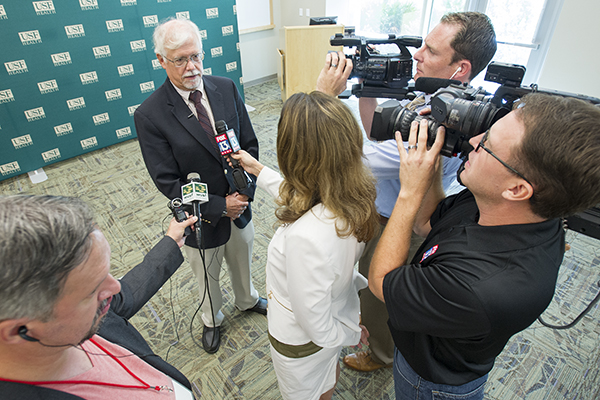
Photos by Eric Younghans, USF Health Office of Communications
Video by Vjollca “V” Hysenlika and Ryan Noone, USF College of Nursing Communications

